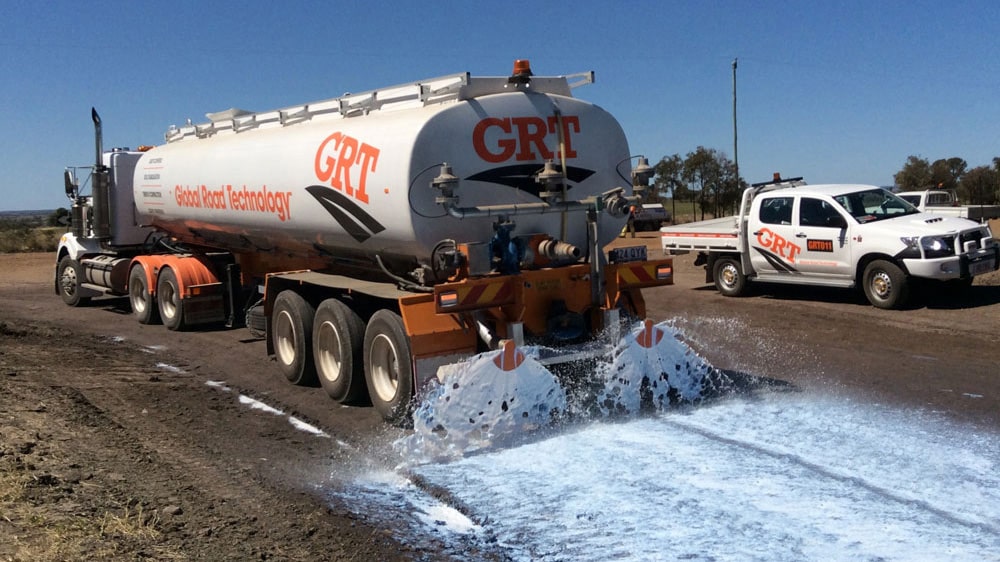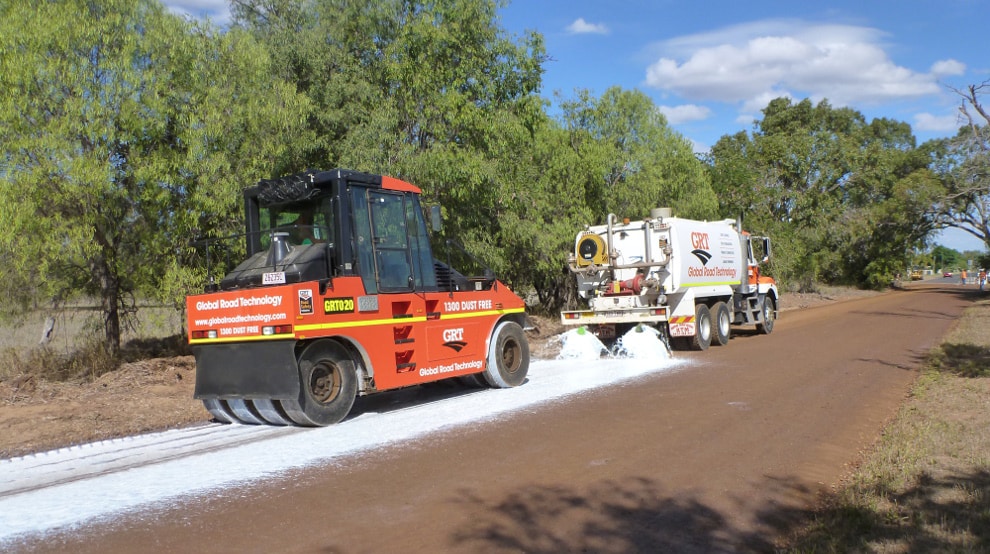Gravel Road Dust Control – Gravel roads are unpaved roads surfaced with gravel. They are common in less-developed countries, in the rural areas of developed countries, as haul roads, etc. Due to dust generated, they are known as ‘dirt roads’ in some countries.
The different ways to control dust on gravel roads are-
- One way is to construct and maintain a gravel road well. However, this kind of gravel road is quite expensive to build, as it requires a lot of equipment: front loaders, dump trucks, graders and road rollers. This equipment is needed to provide a base course in the form of compacted earth or other material, covered with one or more gravel layers.
- The other way to obtain a non-dirt road is to apply adequate dust suppression measures. Following are discussed different gravel road dust control methods.
- The common method is wetting through the use of water sprays. Water generally suppresses dust for less than a day, which results in frequent reapplications. These further lead to high demand in transportation and equipment, and a high level of everyday activities disturbance.
- Hygroscopic salts act by attracting moisture from the atmosphere and thus making road surface damp. Therefore, the effectiveness of this gravel road dust control method depends on the air humidity level. The other disadvantage is corrosivity to vehicle metal parts. Some salts make roads slippery under wet conditions and require well-graded soil in order to be effective. They can be very water soluble and lose effectiveness after precipitation. Furthermore, if leach away and come in contact with vegetation, salts can kill it.
- Petroleum oils and emulsions are also sometimes used. They provide some adhesiveness and water resistivity. However, they can stick together with dirt to vehicles, be transported and thus contaminate other surfaces. This kind of gravel road dust control has a negative effect on nearby vegetation. Furthermore, they are more expensive than other suppressants. There were attempts for using waste oils as dust control agents. However, they may contain heavy metals such as zinc and lead and thus represent an environmental concern.
- Vegetable oils can also be used for gravel road dust control. These can be linseed, cottonseed and soybean oil, wool grease derivatives, soapstock, etc. They have a small binding capability. Since very prone to oxidation, these dust suppressants form a brittle surface. The preconditions for the method success are a well-graded soil-aggregate mixture, loosened surface layer to a depth of 2.5 to 5 cm prior to application, and fines content in range 4 to 8%.
- Lignin sulphonate and its derivatives belong to a group of gravel road dust control agents which has binding properties. They are soluble in water and thus lose effectiveness after precipitation. Roads treated with these suppressants are slippery when wet and brittle when dry. They are corrosive to aluminium and its alloys.

Global Road Technology invented products that provide gravel road dust control and stabilization at the same time. GRT suppressants create resilient and non-slippery roads under all weather conditions. There are no specific requirements associated with soil or aggregate gradation. GRT agents are vehicle-friendly as they are not corrosive. They are not water soluble or toxic to environment.
Global Road Technology also offers solutions for high-quality unpaved roads without bringing a lot of gravel material in place. Depending on road application, GRT can tailor a solution for in situ material no matter of soil type.
